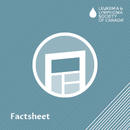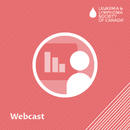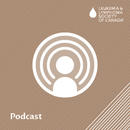Resource Library
Showing 1 to 10 of 302 results
You or your loved one has been diagnosed with a type of blood cancer. You will be making important decisions with your healthcare team.
Treatment and side effects
Your patient has been diagnosed with a type of blood cancer. You will be supporting them and their family in making important decisions
Treatment and side effects
If you are affected by a blood cancer, you want your voice to be heard and your health care needs to be met. Ryan Clarke, Senior Vice-President, Advocacy & PR at CRG-Eversana Canada Inc, speaks about the importance of self-advocacy and will share tips on how to be an effective advocate when working with your medical team.
Mental health and wellness
This factsheet is for people receiving cancer treatment. It promotes an active, safe, and adapted lifestyle during treatment. It is also meant to support people’s autonomy, especially if they do not have access to an exercise professional specialized in cancer.
Mental health and wellness
To understand blood cancers, you need to know where the three types of cells in the blood come from and where they go: red blood cells, white blood cells and platelets.
Diagnosis and tests
Beyond active surveillance (the ‘watch and wait approach’) there are several CLL treatments to consider. Each treatment has different features and side effects. It is important to be comfortable with the CLL treatment you choose.
Leukemia
The emotional cost of caregiving when a loved one has a blood cancer is no small matter – as Saskatchewan’s Lori Galbraith can attest. The mother of four was the caregiver of her husband Jim, who was diagnosed with acute myeloid leukemia (AML) and underwent a stem cell transplant.
“The hardest part was providing positive emotional support [to…
“The hardest part was providing positive emotional support [to…
Mental health and wellness
Loss of appetite is a common side effect of cancer and your treatment. This means you may not feel hungry, not want to eat, or have no taste for food. It can lead to weight loss that could negatively impact your health and quality of life. It’s important to eat well during your cancer treatment so you don’t experience malnutrition.
Treatment and side effects
Your treatment plan for DLBCL will be based on your age and overall health, potential long-term side effects, your stage (where the disease is located in you), symptoms, and fertility if applicable. Types of treatment for DLBCL include traditional chemotherapies, targeted therapies, stem cell transplant, radiation, and immunotherapies.
Lymphoma



